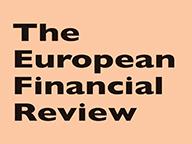Faculty News
—
Prof. Paul Wachtel on the recent decline in the global stock market
—

Excerpt from CNC World -- "My thinking is that this immediate short-run market reaction on the day of the announcement was a bit of an overreaction because this was all predictable. That said, in the longer run, moving forward over the course of the next year, interest rates will be moving up. The long-term U.S. government bond rates have been at historical lows for a long, long, long time. They are going to be easing up over time as the Fed reduces its easing policy and the economy begins to improve."
Faculty News
—

Excerpt from CNC World -- "My thinking is that this immediate short-run market reaction on the day of the announcement was a bit of an overreaction because this was all predictable. That said, in the longer run, moving forward over the course of the next year, interest rates will be moving up. The long-term U.S. government bond rates have been at historical lows for a long, long, long time. They are going to be easing up over time as the Fed reduces its easing policy and the economy begins to improve."




















